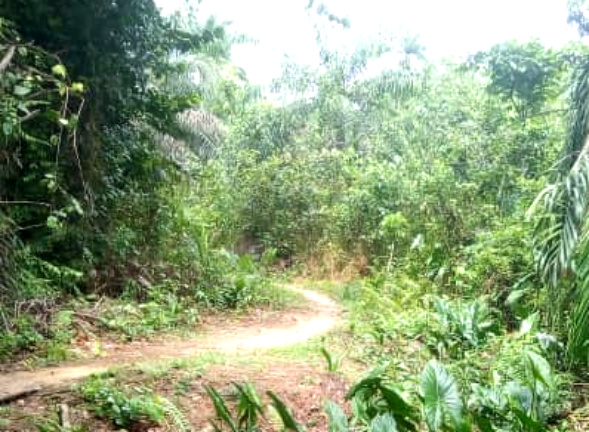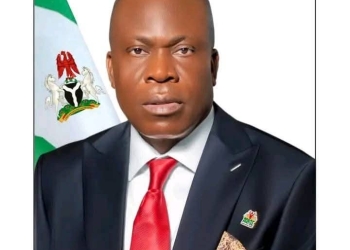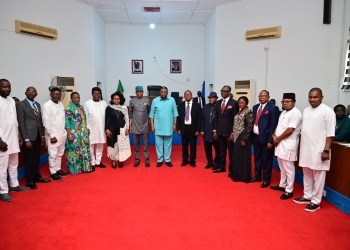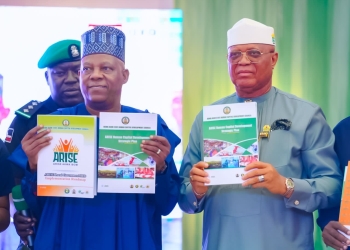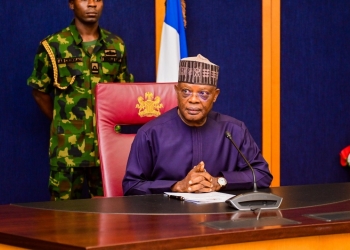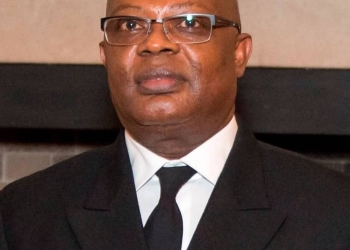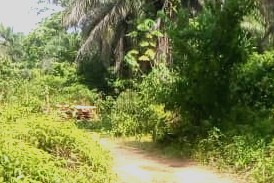
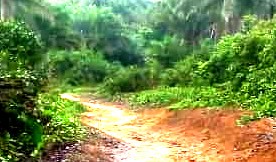
By Edet-Honesty Effiong
In an essentially pedestrian, agro – centric, rural economy, infrastructure means Roads. And in socioeconomic governance, road means growth and development. This basically underscores the overwhelming importance of road infrastructure in the overall well-being of a people.
Today, Akwa Ibom State is rated as the State with best network of roads in Nigeria, with the State capital, Uyo, listed as one of the 7 fastest growing cities in Africa, courtesy of the infrastructural revolution begun by Arc. Obong Victor Attah as Governor in 1999. The State is now a leading sub – national especially in the area of road infrastructure.
A pedestrian economy at creation in 1987, Akwa Ibom State has, within this short period, emerged as the most visited region in Nigeria based on the scope and speed of development in all ramifications. And if this tempo is sustained, hopefully, the State could become the Eldorado and the ‘Dubai’ of Africa in the very near future.
Thanks to his ARISE Agenda, Governor Umoh Enoh has zeroed in on rural infrastructure development as one of his administration’s cardinal programs. And in the first one year of this government, one can, without a doubt, conclude that the revolution in rural infrastructural renaissance across the State, including the hitherto neglected, but strategically located coastal region of Oron, is on steady stride. This program has actually resonated with the citizens.
If Akwa Ibom State must really be seen as truly developed, then every socioeconomic factor needed to stimulate Commerce and the economy Oro Nation, which is the gateway to the blue economy along the Cameroun corridor within the Gulf of Guinea, must be prioritized. Consequently, therefore, road development in the region must be seen, not only as a necessity, but a sinequanon . Thanksfully, Pastor Umoh Enoh understands!
But, much as we remain enthusiastic, applauding the Governor’s efforts in this regard, there’s the compelling need to draw his attention to a particular and very strategic, but abandoned road project in Oron region. However, before then, I we shall fail to advise the Governor to be careful not to be misled selfish, short – sighted, and clanish politicians who might want to identify only ‘ political’ roads , the ones that may not really address the greater socioeconomic needs and well-being of the greater majority of the people of the region and Akwa Ibom State in general.
To this end, therefore, there’s wisdom enlisting the support and services of Paramount Rulers and Community Dev Associations to identify those critical road infrastructure within their domain that will greatly impact the lives of the masses. One is tempted to offer this advice in view of what one witnessed some years back when a certain Minister of the Federal Republic from this region constructed a Federal highway to his house, a distance of about 2kms.; meanwhile the said road connected about 9 densely populated communities in the region, spanning about 15.6kms. Today,, that project remained abandoned at that stage for the past 42 years. This scenario is already playing out in some of the places where road construction are ongoing or earmarked for construction.
This now brings me to the subject matter of this conversation; the case of Uda – Oduenim – Oruko – Uboro Road. This road connects several communities in Mbo, Urue Offong/ Oruko/ Oron local government areas. It’s, arguably, the longest single rural road infrastructure in the whole Oron.
Historically, this road was the only route on land that provided access from Oron mainland to the coastal region then known as Effiat/Mbo zone.
It’s on record that this road had been earmarked for construction since the days of Dr. M. I. Okpara, Premier of the now defunct Eastern Region of Nigeria. A feeble attempt at its construction was undertaken during the administration of Brig – Gen. U.J. Esuene in the erstwhile South Eastern State immediately after the Nigerian civil war. This particular road project was a recurring item on the Budget of the former Oron Local Government from 1976 till the creation of Mbo LGA. in 1989. Yet not a single piece of riad architecture was laid throughout this period.
Recall that the only time actual attempt was made to build this very important road occurred in 2001 by the administration of Arc. Obong Victor Attah. Unfortunately, and very painfully too, the project was abandoned few weeks after commencement, owing probably to the actions of some corrupt, selfish and clanish politicians in corridors of power then whose property/villages didn’t fall within the road’s right of way to attract huge compensation from government.
It would amount to an understatement to say that the construction of road will positively impacts the lines of the vast population of the people that inhabit this region, boosting local trade and commerce and increased social interactions.
It’s nostalgic to recall here that this road is located within the zone that once served as the economic nerves of Oro Nation. Apart from the daily markets in Oron Urban ( Akani Obio), the two largest and most thriving markets in the entire Oron land ( Oruko and Uda markets) lied along this route. The Uda fish Market then attracted buyers throughout Oron and beyond. Ask any fish trader from the old Eket, the whole Nsit nation, Uyo and beyond and they would tell you how they rued the closure of this popular market from where tthey used to source their twice weekly dried fish supplies. I recall also when traders from the distant land of Afikpo in the present day Ebonyi State would camp in this market for months, trading in various kinds of merchandise.
It’s worth recalling also that Oruko was the second largest centre of commerce in Oro Nation then after Oron Urban. That was made possible when this road this remained motorable, especially the Uda – Oduenim section. The famous Oruko market would always bring commercial activities from morning till night, with traders coming from as far away regions of Aba, Onitsha, Port Harcourt etcetera.
The Uda – Oduenim – Oruko – Uboro road when constructed will be a lifeline for rural commerce, a catalyst for socioeconomic growth, integration and transformation within the Oro heartland. It is sure going to be a game – changer for businesses and travellers, will unlock new opportunities and stem the ever – increasing rural – urban migration. Travel time between the hinterland Oron and the coastal region of Mbo will be reduced considerably. And if the Ibom Deep Seaport would also serve the needs the local population here, while bolstering trans – national commerce and stimulating economic growth, then this road is it.
No road within this region would make more meaning to the of Uquong, Ubodung, Ibighi and Okpo Clans in Mbo, Urue Offong/Oruko and Oron local council areas vis a vis access to the Ibom Deep Seaport than this road. To access the Seaport even from Uyo, the State capital through Oron Urban, Eyo Abasi, Udung Uko, Ebughu, Enwang, Afi, Uda Orukim would not only be time wasting, but long and circuitous. Whearas, the Uya – Oron, Uboro, Oruko Uda route from the East – West Road to Methodist’s Primary School, Uda on the Etebi – Enwang Road will save a lot of travel time.
Consequently ,as work is steadily progressing on the Orukim – Unyenge – Ibom Deep Seaport Road, there’s the corresponding and compelling need to urgently activate necessary protocol required for the construction of this all – important road if the Ibom Deep Seaport is also serve the needs of Oron people who are supposed to be the primary beneficiaries of the project.
The only major highway leading to the Seaport from Etebi, one is not shy to say, does not and will never be of any benefit nor promote the interest of the greater majority of Oron people. A road to link the people of Uda with their kith and kin in Oron mainland is most preferred. There’s no gainsaying or overemphasying the fact that the Uda – Oduenim – Oruko – Uboro Road will completely change the socioeconomic landscape of Oro Nation.
I APPEAL TO YOUR CONSCIENCE, YOUR EXCELLENCY.
Apst (Supol) Edet – Honesty Effiong is the President – Emeritus, Uda Community Dev. Union, Lagos Branch. He writes from Ikeja Lagos.
